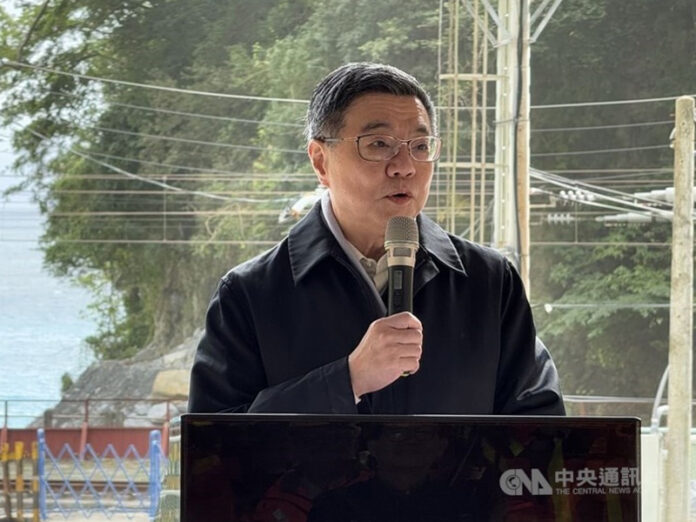Taipei, Taiwan — Premier Cho Jung-tai announced on Saturday that the Taiwanese Cabinet would take countermeasures after contentious amendments were passed in the Legislature. These amendments, pushed through by opposition parties, have sparked significant concerns about their potential impact on governance and constitutional rights.
Key Amendments and Legislative Process
On Friday, the Taiwan Legislature passed three key packages of amendments, which sparked hours of intense debate and physical brawls between lawmakers from the ruling Democratic Progressive Party (DPP) and the opposition parties, namely the Kuomintang (KMT) and the Taiwan People’s Party (TPP). The amendments cover a range of issues, including the tightening of recall petition requirements, limiting the Constitutional Court’s ability to rule on cases, and changing the allocation of central government revenue.
The amendments passed with the support of the opposition KMT and TPP, which hold a majority in the Legislature. However, they did so without comprehensive discussions in the Legislature, raising concerns from the DPP regarding their potential effects on Taiwan’s democratic framework.
Premier Cho’s Response
Premier Cho Jung-tai, in a statement on Saturday, expressed his regrets about the passage of the amendments. He pointed out that the revised measures would be “difficult to implement” and lacked adequate discussion in the Legislature. He also stated that the Cabinet would take constitutional remedies to address the changes, though specifics on the actions to be taken were not provided.
The Cabinet can seek a reconsideration of a law passed by the Legislature or bring it before the Constitutional Court for adjudication. Earlier this year, similar actions were taken when the KMT and TPP pushed through amendments granting broader investigative powers to the Legislature, which were later struck down by the Constitutional Court.
President Lai Ching-te’s Concerns
President Lai Ching-te, who also chairs the DPP, expressed concern that the new amendments would limit citizens’ rights to petition for a recall of elected officials and impose unreasonable thresholds for constitutional rulings. Additionally, he warned that the changes might force the government to reduce spending on critical sectors like national defense, thus jeopardizing national security.
Lai, while not elaborating on the details, suggested that “democratic disputes should be resolved with even greater democracy,” signaling the DPP’s commitment to a more inclusive decision-making process.
Opposition Parties’ Defense of the Amendments
The opposition KMT, led by Chairman Eric Chu, defended the amendments, stating that the new measures would prevent abuse of recall petitions and avoid biased rulings by the Constitutional Court. Chu also criticized the DPP’s actions to stall the legislative process, calling them an attempt to “paralyze the Legislature.”
Additionally, the KMT argued that the revised revenue allocation measures would help local governments alleviate fiscal deficits and improve their financial stability, addressing concerns over Taiwan’s fiscal challenges.
Table: Summary of Key Amendments Passed
| Amendment | Impact |
|---|---|
| Recall Petition Requirements | Tightens requirements for citizens to initiate recall petitions for elected officials. |
| Constitutional Court’s Power | Limits the ability of the Constitutional Court to rule on certain cases. |
| Revenue Allocation | Changes the distribution of central government revenue to local governments. |
FAQs
Q1: What are the main changes introduced by the amendments?
A1: The amendments focus on tightening recall petition requirements, limiting the powers of the Constitutional Court, and altering the allocation of government revenue to local governments.
Q2: Why are these amendments controversial?
A2: The amendments were passed without thorough discussions, and concerns have been raised about their potential to undermine democratic rights and national security.
Q3: What countermeasures is the Cabinet planning?
A3: The Cabinet is considering constitutional remedies, which could include requesting the Legislature to reconsider the amendments or bringing the issue before the Constitutional Court.
Q4: What are the potential impacts on local governments?
A4: The amendments are expected to help local governments manage fiscal deficits by changing how central government revenue is allocated to them.
Q5: What does President Lai Ching-te think about the amendments?
A5: President Lai is concerned that the changes will limit citizens’ rights and could lead to reduced national defense spending, thereby endangering Taiwan’s security.
